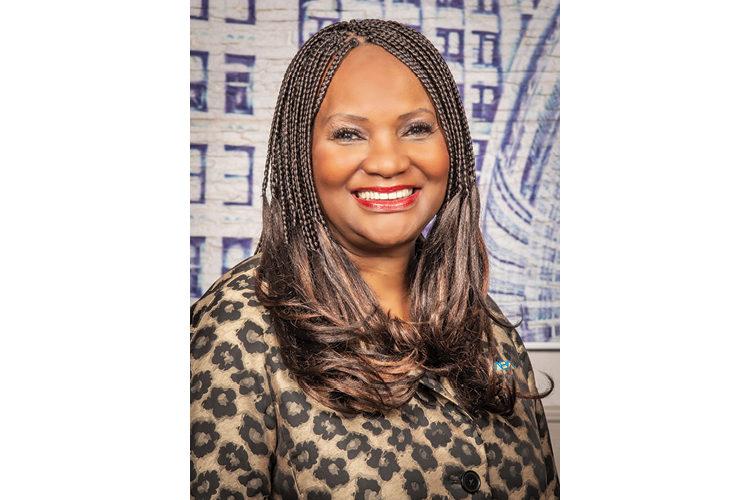Civil legal aid shrinks the justice gap and makes the court system more equitable

Photo of Deborah Enix-Ross by Harvey Tillis
This year, we commemorate the 60th anniversary of the landmark U.S. Supreme Court decision in Gideon v. Wainwright, which provided a constitutional guarantee of legal counsel for criminal cases. But as important as the Gideon assurance is in criminal cases, no such guarantee exists in civil cases.
In fact, low-income Americans who qualify for civil legal aid will be unable to receive assistance for 92% of their legal problems—including evictions, employment disputes, custody battles and domestic violence—because of funding shortfalls.
I started my legal career working for MFY Legal Services (now called Mobilization for Justice) in New York City. I know firsthand how much help is needed and how much good can be done. The list of good works is long, from helping disabled vets get the benefits they deserve to avoiding eviction and keeping a single mother in her home to getting a protection order for an abused woman.
In 1920, the American Bar Association established the Standing Committee on Legal Aid and Indigent Defense to protect the legal rights of low-income populations. The standing committee has advanced that mission for more than a century.
One of the biggest achievements in the battle to close the justice gap has been the creation of the Legal Services Corp. Since its inception in 1974, LSC has funded legal aid grantees that provide services benefiting more than 1.8 million low-income Americans in every state and territory throughout the country annually.
As ABA president, I have visited legal aid clinics from coast to coast. Some that I visited, such as Legal Services of Greater Miami, Community Legal Services in Arizona and Lone Star Legal Aid, are funded by the LSC. But others, such as Connecticut Legal Services and the Pennsylvania Legal Aid Network, receive their support from state governments and interest on lawyer trust account funds. What is universal is the lack of sufficient resources to meet the demand.
The law can be a complex web of technical terms and procedures that is difficult for the average person to understand. Yet millions of seniors, veterans, abused women and others lack the resources to afford counsel even as they seek to protect their most basic and fundamental rights. Far too many people who are facing landlord-tenant disputes, employment cases and health care matters go unrepresented in state civil courts. Between 2000 and 2019, more than 94% of the plaintiffs in federal civil rights and immigration cases were pro se, according to the Administrative Office of the U.S. Courts.
The ABA has been a committed supporter of the Legal Services Corp. from its inception as well as all forms of civil legal aid. Former U.S. Supreme Court Justice Lewis Powell, who also served as ABA president in 1964-65, aided in the adoption of the Legal Services Corporation Act of 1974.
“Equal justice under law is not merely a caption on the façade of the Supreme Court building,” Justice Powell said in a 1976 speech to the ABA. “It is perhaps the most inspiring ideal of our society. It is one of the ends for which our entire legal system exists.”
Every year, the association’s lobbying effort known as ABA Day has concentrated on securing LSC funding from Congress. In March, nearly 200 lawyers came to Washington, D.C., to advocate for Legal Services Corp. funding. Many others contacted representatives at home or online.
ABA Free Legal Answers provides a virtual legal advice clinic in which qualified users post civil legal questions online at no cost to be answered by pro bono attorneys licensed in their state. Since its 2016 launch, more than 11,000 pro bono attorneys have registered to respond to questions. In November, Free Legal Answers passed the milestone of 250,000 questions addressed.
We can all play a part in making our court system fairer for all. Letting your representatives in Congress know that Legal Services Corp. funding is critical is a good start. Volunteering for Free Legal Answers or other pro bono efforts is even better. As members of the legal profession, we all have a responsibility to shrink the justice gap to reach that ideal of equal justice.
This story was originally published in the June-July 2023 issue of the ABA Journal under the headline: “Equal Justice Requires Our Help: Aid for civil legal services shrinks the justice gap and makes the court system more equitable.”



